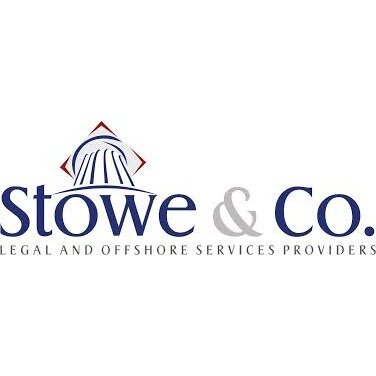Best Securities Lawyers in Dominica
Share your needs with us, get contacted by law firms.
Free. Takes 2 min.
Or refine your search by selecting a city:
List of the best lawyers in Dominica
About Securities Law in Dominica
Securities Law in Dominica governs the issuance and trading of securities, which are financial instruments that represent ownership or debt in a company. This area of law aims to ensure transparency, fairness, and investor protection in the securities market.
Why You May Need a Lawyer
Individuals or businesses may require a lawyer specializing in Securities Law in Dominica for various reasons, including: drafting and reviewing securities offering documents, compliance with regulatory requirements, representation in securities litigation, and seeking legal advice on complex securities transactions.
Local Laws Overview
Key aspects of Securities Law in Dominica include the Securities Act of 2001, which regulates the issuance, trading, and disclosure of securities. The Eastern Caribbean Securities Regulatory Commission (ECSRC) oversees securities regulation in Dominica and other Eastern Caribbean countries.
Frequently Asked Questions
1. What is a security?
A security is a financial instrument that represents ownership or debt in a company. Common types of securities include stocks, bonds, and mutual funds.
2. What are the regulatory requirements for issuing securities in Dominica?
Issuers of securities in Dominica must comply with the Securities Act of 2001, which includes requirements for registration, disclosure, and investor protection.
3. What is the role of the Eastern Caribbean Securities Regulatory Commission (ECSRC)?
The ECSRC oversees securities regulation in Dominica and other Eastern Caribbean countries, ensuring compliance with regional and international standards.
4. What are the penalties for securities fraud in Dominica?
Securities fraud in Dominica is a criminal offense that can result in fines, imprisonment, and civil liability for damages to affected investors.
5. Can I sue for securities fraud in Dominica?
Yes, individuals who have been defrauded in securities transactions in Dominica can seek legal recourse through civil litigation against the responsible parties.
6. What is insider trading?
Insider trading involves trading securities based on material non-public information, which is illegal and punishable by law in Dominica.
7. How can I verify the legitimacy of a securities offering in Dominica?
Before investing in a securities offering in Dominica, it is essential to conduct due diligence, review offering documents, and seek advice from a qualified securities lawyer.
8. Are there any exemptions for securities registration in Dominica?
Under certain circumstances, securities issuers in Dominica may qualify for exemptions from registration requirements, such as private placements or offerings to institutional investors.
9. What rights do shareholders have in Dominica?
Shareholders in Dominica have rights to receive dividends, vote on corporate matters, access financial information, and participate in shareholder meetings.
10. How can I file a complaint about securities fraud in Dominica?
If you suspect securities fraud in Dominica, you can report it to the ECSRC, the Financial Services Unit of the Ministry of Finance, or seek legal advice from a securities lawyer.
Additional Resources
For more information on Securities Law in Dominica, you can visit the website of the Eastern Caribbean Securities Regulatory Commission (ECSRC) or consult with a local law firm specializing in securities law.
Next Steps
If you require legal assistance in Securities Law in Dominica, it is advisable to contact a qualified securities lawyer who can provide guidance tailored to your specific situation. Be sure to gather relevant documents and information to share with your lawyer during the initial consultation.
Lawzana helps you find the best lawyers and law firms in Dominica through a curated and pre-screened list of qualified legal professionals. Our platform offers rankings and detailed profiles of attorneys and law firms, allowing you to compare based on practice areas, including Securities, experience, and client feedback.
Each profile includes a description of the firm's areas of practice, client reviews, team members and partners, year of establishment, spoken languages, office locations, contact information, social media presence, and any published articles or resources. Most firms on our platform speak English and are experienced in both local and international legal matters.
Get a quote from top-rated law firms in Dominica — quickly, securely, and without unnecessary hassle.
Disclaimer:
The information provided on this page is for general informational purposes only and does not constitute legal advice. While we strive to ensure the accuracy and relevance of the content, legal information may change over time, and interpretations of the law can vary. You should always consult with a qualified legal professional for advice specific to your situation.
We disclaim all liability for actions taken or not taken based on the content of this page. If you believe any information is incorrect or outdated, please contact us, and we will review and update it where appropriate.
Browse securities law firms by city in Dominica
Refine your search by selecting a city.











